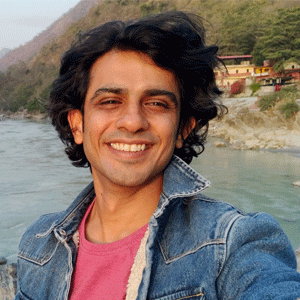
A prototype is an idea made tangible to learn quickly about the unknowns. Rapid prototype testing involves taking still rough ideas to people to validate assumptions and get early feedback. This allows one to save costs and time in building an end product, service, program or even policy which is suited to people’s needs, challenges, behaviours, attitudes, aspirations and preferences. This process allows to stress test a solution in real world conditions, at real world locations. This approach reduces development time & cost and de-risks investments by testing key assumptions early on.
India has emerged as a prototyping hub in recent years due to the focus on improving the social, financial & economic lives of its growing population by both - the private & public sector, and a growing recognition by organisations to provide products, programs, services & policies that are tailored to Indian people’s needs and aspirations, not a copy-paste model from other geographies. Organisations are recognising that innovation is needed to meet people’s preferences & behaviours and it needs to happen within resource constrained settings in India.
“The India studio started in 2017, and this year, our team is growing fast. We work in sectors like public health, agriculture, financial inclusion, education, data-privacy, policy making, and climate change, among others. We often deploy rapid prototyping tools to enable cost and time effective solution design and implementation to meet people’s needs and aspirations. For e.g., between 2021 & 2022, we worked with government health departments, healthcare providers and workers, community members and implementation organisations in India to design and rapidly test prototypes to reduce Covid-19 vaccine hesitancy, build vaccine confidence and increase vaccination uptake", says Prerak Mehta, Director at Dalberg Design. Dalberg Design is a part of Dalberg, a global group working to build a more inclusive and sustainable world where everyone, everywhere, can reach their fullest potential.
Driving Positive Social Change
Dalberg Design partners with leading organizations to bring people to the table so they can design solutions to the challenges and opportunities that affect their day to day lives. They use creative facilitation and participatory design process to address inequities and drive positive social change with – not for – the communities they serve.
Dalberg Design began their journey as a human-centered design (HCD) practice in 2014 and today has a global footprint with design studios in Dakar, London, Mumbai, Nairobi, and New York.Their teams have worked with communities in 43+ countries on 200+ projects. Dalberg Design’s approach to HCD is iterative, measurable and results driven, and they deploy it to help people design products, services, programs, policies and strategies for positive social impact. As the pandemic approached, travel was got restricted and in-person visits a health and safety risk for everyone. This led Dalberg Design to adapt their methods and over the last two years they have developed and successfully deployed toolkits for remote research and design, remote creative facilitation and integrating HCD with behavioural science. These tools helped them continue rapid prototyping in hybrid remote and in-person environments through the pandemic.
A Glimpse Into The Future
Dalberg Design is a part of Dalberg, a global group working to build a more inclusive and sustainable world where all people, everywhere, can reach their fullest potential. It believes that creative problem solving approaches should keep evolving with times and currently, the organisation is in the process of shifting their model to Equity Centered and Community Based Design (ECCD). ECCD is a process that combines human-centered design, community development, and systems change to create equitable outcomes for communities.
We use cookies to ensure you get the best experience on our website. Read more...